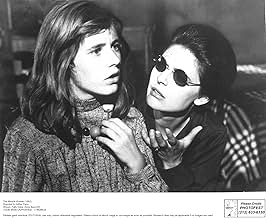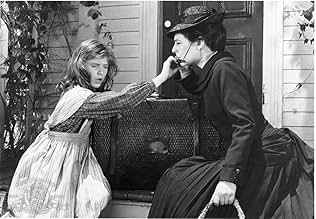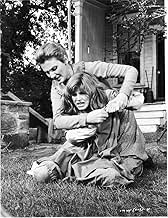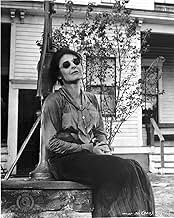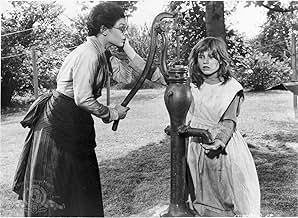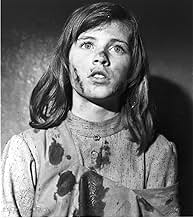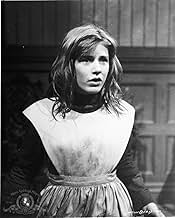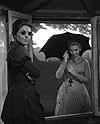The story of Anne Sullivan's struggle to teach the blind, deaf and mute child Helen Keller how to understand and communicate.The story of Anne Sullivan's struggle to teach the blind, deaf and mute child Helen Keller how to understand and communicate.The story of Anne Sullivan's struggle to teach the blind, deaf and mute child Helen Keller how to understand and communicate.
- Won 2 Oscars
- 12 wins & 13 nominations total
- Undetermined Role
- (uncredited)
- Martha at Age 10
- (uncredited)
- Admissions Officer
- (uncredited)
- Doctor
- (uncredited)
- Percy at Age 10
- (uncredited)
- Annie at Age 10
- (uncredited)
- 2nd Crone
- (uncredited)
- Jimmie at Age 8
- (uncredited)
- 1st Crone
- (uncredited)
- 3rd Crone
- (uncredited)
- Viney - Keller Maid
- (uncredited)
Storyline
Did you know
- TriviaMark Twain was the first person to refer to Anne Sullivan as "the miracle worker". Twain was a friend of Helen Keller.
- GoofsAnnie Sullivan has to look up the word discipline in a dictionary later in the film even though she's used it in a letter near the beginning; however, she remarks that she must know how to spell it before teaching it to Helen, and may have simply used her best guess in the letter since nothing was at stake.
- Quotes
Annie Sullivan: I have to live with her somewhere else.
Kate Keller: For how long?
Annie Sullivan: Until she learns to listen to and depend on me.
Captain Arthur Keller: Miss Sullivan...
Annie Sullivan: Captain Keller, it meets both of your conditions. It's the one way I can get back in touch with Helen, and I don't see how I can be rude to you again if you're not around to interfere with me.
Captain Arthur Keller: And what's your plan if I say no? Pack the other half for home and abandon your charge to... to...
Annie Sullivan: The asylum? I grew up in such an asylum, the State Alms House. Rats? Why, my brother Jimmy and I used to play with the rats because we didn't have any toys. Maybe you'd like to know what Helen will find there, not on visiting days. One ward was full of the old women. Crippled, blind, most of them dying, but even if what they had was catching, there was nowhere else to move them. That's where they put us. Then there were younger ones across the hall, prostitutes mostly, with TB and epileptic fits. And some of the kind that keep after other girls, especially the young ones. And some were just insane. Some had the DTs. Then there were girls in another ward to have babies they didn't want. They started at thirteen, fourteen. They left afterwards, but the babies stayed. We played with them, too. There were a lot of them, with sores all over from diseases you're not supposed to talk about.
- ConnectionsEdited into Histoire(s) du cinéma: Le contrôle de l'univers (1999)
- SoundtracksHush, Little Baby
(uncredited)
Traditional Southern lullaby
Music adapted by Don Costa
Lyrics by Arthur Siegel
Sung by Anne Bancroft
Also played in the score
Details
Box office
- Budget
- $500,000 (estimated)
- Gross worldwide
- $4,139
- Runtime1 hour 46 minutes
- Color
- Sound mix
- Aspect ratio
- 1.85 : 1
Contribute to this page




